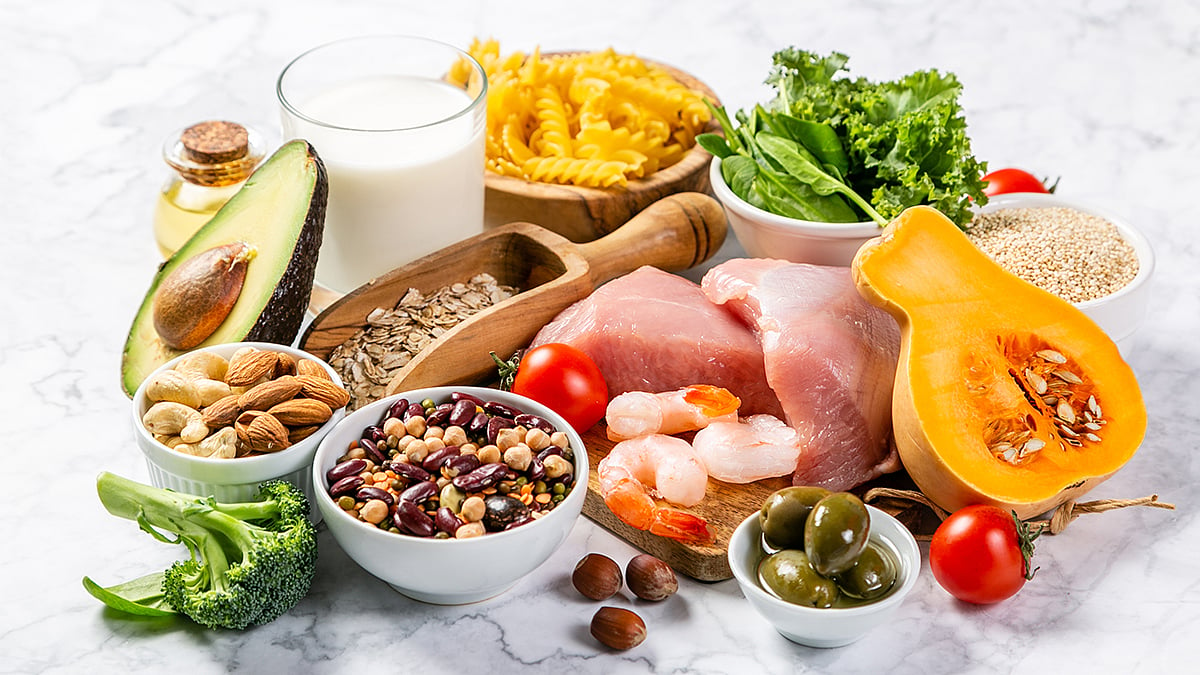Get Healthy!
Results for search "Dieting To Lower Fat Intake".
Health News Results - 12
For years, the world of nutrition has been a battlefield between two camps: Those who swear by low-carb living and those who stick to low-fat diets.
But a massive new study suggests that the winner of this debate isn't a specific macronutrient ratio, but rather the quality of the food on your plate.
Researchers at the Harvard T.H. Chan School of Public Health in Boston found that bo...
- Deanna Neff HealthDay Reporter
- |
- February 13, 2026
- |
- Full Page
"Time-restricted" eating has become a popular weight-loss tactic, but a new clinical trial finds no benefits in adding it to old-fashioned calorie-cutting.
Time-restricted eating is a form of intermittent fasting, in which people limit themselves to eating within a certai...
- HealthDay Reporter
- Amy Norton
- |
- April 21, 2022
- |
- Full Page
Unvaccinated pregnant women are putting themselves and their baby at risk for serious complications of COVID-19, according to new research out of Scotland.
For women who have the virus within 28 days of their delivery date, those complications include preterm births, stillbirths and newborn deaths. Infant deaths are four times higher among unvaccinated women,
Folks who are determined to shed some pounds in the New Year face a bewildering array of fad diets and quickie weight-loss schemes.
Those weighing eating patterns and diet plans such as intermittent fasting, the
Red-meat lovers may raise their risk of heart disease through a chain of events that plays out in the gut, a new study suggests.
Many studies over the years have tied diets heavy in red and processed meats to a heightened risk of heart disease and stroke. That type of evidence does not, however, prove red meat is the problem -- or, if it is, why.
The new findings offer more clues ab...
- HealthDay Reporter
- Amy Norton
- |
- December 29, 2021
- |
- Full Page
Intermittent fasting is all the rage due to its potential health benefits, and now a new review shows this style of eating really does produce weight loss and may even improve certain markers of heart health.
Intermittent fasting is an umbrella ...
- HealthDay Reporter
- Denise Mann
- |
- December 21, 2021
- |
- Full Page
Americans in the prime of their lives are worried about the pounds they packed on during the pandemic and plan to do something about it in the new year, a new Harris Poll/HealthDay survey finds.
Nearly 2 of every 3 U.S. adults (63%) plan to change up their diet in 2022, either by eating less or cutting back on specific foods, poll results reveal.
Adults between the ages of ...
- HealthDay Reporter
- Dennis Thompson
- |
- December 20, 2021
- |
- Full Page
People who get their dietary fat from olive oil rather than steak may help reduce their risk of suffering a stroke, a preliminary study suggests.
The study, of more than 100,000 health professionals, found that those who favored vegetable oils and other plant foods as their source of fat generally had a lower risk of stroke over the years.
Overall, the 20% of people with the highest...
- HealthDay Reporter
- Amy Norton
- |
- November 8, 2021
- |
- Full Page
The MIND diet may help older people ward off Alzheimer's disease, a new study finds.
Developed by the late Martha Clare Morris, who was a Rush University nutritional epidemiologist, and her colleagues, the MIND diet is a hybrid of the Mediterranean and DASH diets.
People in the study who followed the MIND diet even later in life did not develop thinking problems, researchers say.
- HealthDay Reporter
- Steven Reinberg
- |
- September 29, 2021
- |
- Full Page
In terms of healthy eating, timing is everything.
That's the word from researchers who claim the time of day that you eat may be just as important for your health as what you eat.
Having your meals in a consistent window of 8 to 10 hours may help prevent and manage chronic diseases such as diabetes and heart disease, according to the authors of a new study published online Sept. 22...
- HealthDay Reporter
- Steven Reinberg
- |
- September 27, 2021
- |
- Full Page
You remember the ad. It asked if you've "got milk?" and said that "milk does a body good."
So, does it? New research suggests it might.
In the study, people who consumed more dairy fat actually had a lower risk of cardiovascular disease than those who drank or ate less dairy, CNN reported.
"Increasing evidence suggests that the health impact of dairy foods ma...
- HealthDay Reporter
- Cara Murez
- |
- September 23, 2021
- |
- Full Page
Heart attack survivors could gain more than seven healthy years of life if they take the right medications and improve their lifestyle, new research estimates.
Unfortunately, studies have found, heart attack survivors rarely get optimal control over their risk factors.
The new research echoes that evidence: Of more than 3,200 patients, only 2% had their blood pressure, cholesterol a...
- HealthDay Reporter
- Amy Norton
- |
- August 27, 2021
- |
- Full Page











